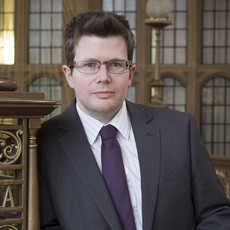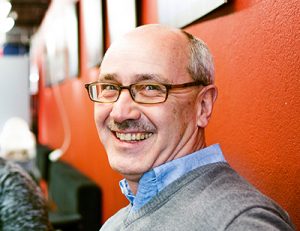Michael Grove
 Michael Grove is a Reader and Deputy Head of Education within the School of Mathematics at the University of Birmingham where he teaches mathematics to undergraduate students and researches issues relating to learning and teaching in mathematics in higher education. He was previously Director of the National HE STEM Programme, a three-year £21million initiative that enhanced the way in which universities recruited students and delivered programmes of study within the Science, Technology, Engineering and Mathematics disciplines, and Associate Director of the sigma Mathematics and Statistics Support Network. He is a National Teaching Fellow, the UK’s highest award for teaching and learning within higher education, a Fellow, and Honorary Secretary with responsibility for education.
Michael Grove is a Reader and Deputy Head of Education within the School of Mathematics at the University of Birmingham where he teaches mathematics to undergraduate students and researches issues relating to learning and teaching in mathematics in higher education. He was previously Director of the National HE STEM Programme, a three-year £21million initiative that enhanced the way in which universities recruited students and delivered programmes of study within the Science, Technology, Engineering and Mathematics disciplines, and Associate Director of the sigma Mathematics and Statistics Support Network. He is a National Teaching Fellow, the UK’s highest award for teaching and learning within higher education, a Fellow, and Honorary Secretary with responsibility for education.
Mathematics support: Learning from past and present to prepare for the future
Abstract
Over the last two decades there has been considerable national work within the higher education sector in supporting students with their learning of mathematics as they make the transition to higher education study. Mathematics and statistics learning support now forms a vital and recognised part of the provision to enhance student learning within many institutions and across a range of disciplines. By drawing upon a series of national surveys I will seek to chart how not only the provision of mathematics support has evolved but also how there is now evidence of its increased diversification within institutions. Additionally, through the extensive research literature that has now developed in this area, I will explore what we have learned from 20 years of national activity in mathematics support and share ideas on how it may continue to develop in the future.
Leif Bryngfors

Leif Bryngfors is the Director for the European SI-PASS center at Lund University, Sweden. Supplemental Instruction (SI) or Peer Assisted Study Session is an academic support model with large international prevalence with the purpose of preventing dropouts and strengthen students’ study abilities and results. The European Centre for SI-PASS are one of five centers worldwide with the mission to inform, train and evaluate SI-programmes. He is also Director for the Regional SI program (working with the collaboration between Universities and Schools) across over 20 municipalities, six HEIs in southern Sweden, around 30 upper secondary schools and 10 lower secondary schools. Leif is Site Coordinator on the Bridge to Employment programme that helps young people build solid futures and works with schools, employers and universities to encourage take-up of STEM-related subjects. Leif is also a member of a number of Boards: INCLUDE, a national network working with widening participation in higher education, and the Ocean Academy based at Lund University, which works to raise awareness of problems and potential solutions in relation to the ocean.
SI-PAL-PASS: a Rose with many names
Abstract
This presentation will give you a background of the program (SI/PAL/PASS), the reason for using the program, the implementation stage, the organization, results and the development of SI/PAL/PASS at Lund University.
Supplemental Instruction (SI), Peer Assisted Study Sessions/Schemes (PASS), and Peer Assisted Learning (PAL) are the common names for the learning program. The objectives of introducing or implementing SI/PASS/PAL vary between Higher Education Institutes (HEIs), some typical examples of SI objectives include:
- improving student performance and retention,
- increasing student engagement with the subject and their understanding,
- complementing ordinary education – organized study groups with a facilitator,
- enhancing students early learning experiences and letting students see their peers as learning resources, to support: (1) a successful transition to higher education, (2) help 1st year students develop a Sense of belonging, (3) academic success, (4) student health and well-being, (5) progression.
Since 1994, the program has been running at Lund University. It started at the Faculty of Engineering in the Surveying course, where students heavily failed in their first math course. After a successful implementation, the program has since grown and spread to 6 of our 8 departments at Lund University. Now we have about 350 paid SI leaders (older trained students) offering SI into different subject areas.
An early ‘development’ by the Lund University has been to offer SI at Upper secondary schools and Middle schools. This has been very successful in the WP work to both establish a long relation with the schools, for Recruitment and to be help in the transition for the students to the university.